Introduction
What Fruits Can Parakeets Eat: Parakeets, also known as budgies, are delightful and colorful companion birds that require a balanced and nutritious diet to thrive. In their natural habitat, these small parrots predominantly feed on a variety of seeds, fruits, and vegetation. When it comes to introducing fruits into their diet, it’s essential to choose options that not only appeal to their taste buds but also provide essential vitamins and minerals for their overall health.
Understanding the appropriate fruits for parakeets is crucial for responsible bird care, as some fruits may be harmful due to high sugar content or the presence of seeds that can be toxic to these feathered friends. Selecting the right fruits for your parakeet involves considering both nutritional value and safety.
While many fruits are suitable for these birds, it’s important to be aware of specific preferences and limitations. Offering a diverse range of fruits, such as apples, berries, melons, and citrus fruits in moderation, can contribute to a well-rounded and enjoyable diet for feed parakeets. However, caution must be exercised with certain fruits like avocados, which are toxic to birds, and seeds within fruits like apples, which should be removed to prevent potential choking hazards. By providing a thoughtfully curated selection of fruits, parakeet owners can ensure their feathered companions receive the nutrition they need while also indulging in delicious and enriching treats.
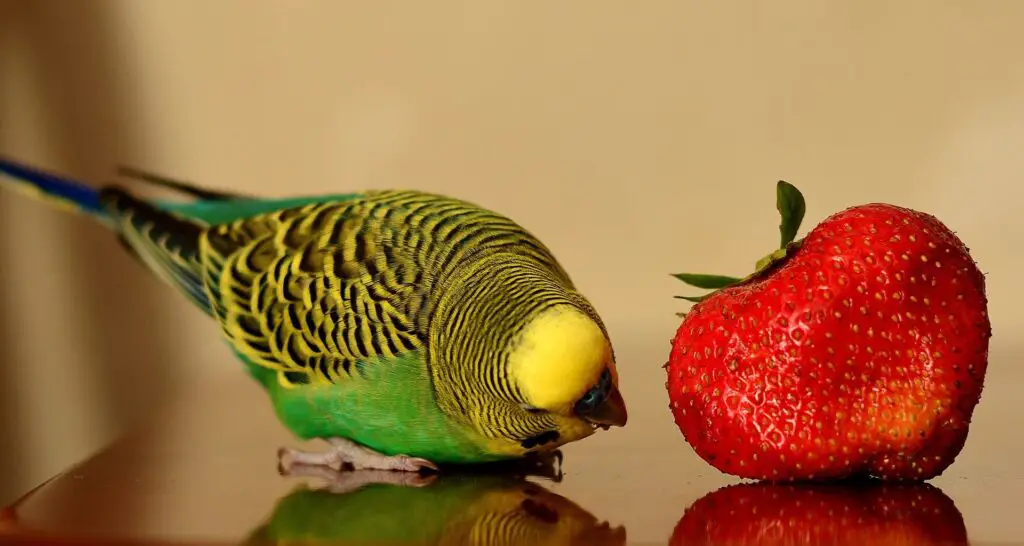
What fruit can parakeets not eat?
While most fruit is safe and generally healthy for birds to consume in small amounts, certain fruits containing seeds (such as apples and pears) and pits (such as cherries, apricots, peaches, nectarines, and plums), should not be offered to birds without removing the seeds and pits first, as these seeds and pits.
Parakeets should avoid certain fruits due to potential health risks or toxicity. One such fruit is avocado. Avocado contains a substance called persin, which can be harmful to birds and may lead to respiratory distress and other health issues. The pit of an avocado poses a choking hazard. As a result, it is strongly recommended to keep avocados away from parakeets.
Citrus fruits, such as oranges, lemons, and grapefruits, should also be provided in moderation. While these fruits can be given occasionally, excessive consumption may lead to digestive upset in parakeets due to their acidic nature. Similarly, fruits with pits or seeds, such as cherries and peaches, should be offered with caution. The seeds of these fruits may contain compounds that are not suitable for parakeets, and the pits can be a choking hazard.
It’s essential for parakeet owners to research and be aware of specific fruits that can be harmful to their feathered friends. Providing a well-balanced and diverse diet, while being mindful of potential risks, contributes to the overall health and happiness of parakeets.
Can parakeets eat real fruit?
Fruits and vegetables are part of the standard diet for pet parakeets. They enjoy the different textures and tastes, and fresh foods are part of the bird’s sensory world. Unlike human children, it’s perfectly okay for parakeets to play with their food! Always offer fruit and veg raw.
Parakeets can eat real fruit, and incorporating a variety of fruits into their diet can contribute to their overall well-being. Many fruits offer essential vitamins, minerals, and antioxidants that support the health of parakeets. Some suitable fruits for parakeets include apples, berries (strawberries, blueberries, raspberries), melons (watermelon, cantaloupe), grapes, and bananas.
However, it’s important to feed fruits in moderation, as an excessive amount of certain fruits, especially those high in sugar, can lead to health issues such as obesity and digestive problems. Some fruits have pits or seeds that should be removed to prevent choking hazards.
Before introducing new fruits into a parakeet’s diet, it’s advisable to research each fruit’s suitability and consult with a veterinarian specializing in avian care. Providing a balanced diet that includes a mix of fruits, vegetables, and high-quality parakeet pellets is key to maintaining the health and happiness of these small and colorful birds.
What are parakeets’ favorite food?
Parakeets love broccoli florets, dark leafy greens, finely chopped carrots, sweet potatoes, and other veggies. A seed mix is not going to provide adequate nutrition. You need to be feeding a nutritionally balanced diet. Pellets are an option, but parakeets love whole seeds.
Parakeets, also known as budgies, have diverse taste preferences, but their favorite foods often include a mix of seeds, fruits, and vegetables. Here are some commonly enjoyed foods by parakeets:
Seeds: Parakeets generally love a variety of seeds. Commercially available parakeet seed mixes often include millet, sunflower seeds, and safflower seeds. However, it’s crucial to offer seeds in moderation as the main diet, as a seed-only diet lacks essential nutrients.
Fruits: Parakeets enjoy a range of fruits. Favorites often include apples (remove seeds and core), berries (strawberries, blueberries), bananas, grapes, and melons. Fruits provide essential vitamins and add variety to their diet.
Vegetables: Leafy greens and vegetables are important for a parakeet’s health. Offer vegetables like spinach, kale, broccoli, carrots, and bell peppers. These provide crucial nutrients and add color and texture to their meals.
Pellets: High-quality commercial pellets specifically formulated for parakeets are an essential part of their diet. These pellets are nutritionally balanced and ensure that parakeets receive the necessary vitamins and minerals.
Sprouted Seeds: Parakeets often enjoy sprouted seeds, which are seeds that have started to germinate. They are a nutritious and tasty addition to their diet.
Can parakeets eat tomatoes?
Can parakeets eat tomatoes? Pieces of ripe tomato should be fine for your parakeet to eat. ? Do keep in mind that tomatoes are quite acidic, so don’t overfeed them just to avoid the slight chance of stomach irritation or even ulcers.
Yes, parakeets can eat tomatoes in moderation. Tomatoes are safe for parakeets and can provide some nutritional benefits. Tomatoes are a good source of vitamins such as vitamin C and other antioxidants. Additionally, they contain lycopene, which is beneficial for overall health.
When offering tomatoes to your parakeet, make sure to remove the seeds and any green parts. The seeds and green portions of the tomato contain certain compounds that may not be suitable for birds in larger quantities.
It’s always a good practice to introduce new foods gradually and in small amounts to observe your parakeet’s response. If you notice any signs of digestive upset or if your bird seems disinterested, it’s wise to adjust the portion size or try different fruits and vegetables.
As with any aspect of a parakeet’s diet, variety is key. Ensure that tomatoes, like other fruits and vegetables, are just one part of a well-balanced diet that includes a mix of seeds, pellets, and other fresh produce. If you have any concerns about your parakeet’s diet, consulting with an avian veterinarian is recommended.
Can a parakeet eat rice?
The answer to the question “can parakeets eat rice” is; Yes, parakeets can eat rice. The assumption that rice swells up a parakeet’s stomach is completely myth. The truth is, rice is completely safe for parakeets and they actually love to eat it.
Parakeets can eat rice, and it can be a part of their diet when cooked plain. Plain, cooked rice, whether it’s white or brown, is a safe and easily digestible food for parakeets. Rice can provide some energy and can be a source of carbohydrates for these small birds.
When preparing rice for your parakeet, ensure that it is cooked without any added seasonings, salt, or oils. The goal is to offer a plain and simple version that won’t pose any harm to your bird. Cooked rice can be served either warm or cooled to room temperature.
That while rice can be included in their diet, it should not constitute the majority of their meals. Parakeets require a balanced diet that includes a variety of seeds, pellets, fruits, and vegetables to meet their nutritional needs. Introducing new foods gradually and observing your parakeet’s response is always a good practice.
As with any dietary changes or concerns, consulting with an avian veterinarian can provide specific guidance based on your parakeet’s individual health and dietary requirements.
Does a parakeet talk?
Parakeets are one of the most vocal birds in the parrot family. A happy parakeet will typically be tweeting a song, talking, or even mimicking sounds they hear often. Parakeets are able to talk using words that they’ve heard. Some have been known to learn hundreds of words from their owners.
Yes, parakeets, also known as budgerigars or budgies, are known for their ability to mimic and talk. They are among the most talkative and talented talking birds. While not every parakeet will talk, many can learn to mimic words and phrases with proper training and interaction.
Male parakeets are generally more inclined to mimic speech than females. The ability to talk also depends on the individual bird’s personality, the environment it lives in, and the level of interaction it has with its human caregivers.
To encourage a parakeet to talk, consider the following tips:
Start Early: Younger parakeets are often more receptive to learning new sounds and words. However, older parakeets can also learn with patience and consistent training.
Be Patient: Teaching a parakeet to talk takes time and patience. Repeat words or phrases clearly and consistently, and reward the bird when it mimics the sounds.
Create a Positive Environment: Parakeets are more likely to talk in a relaxed and positive environment. Spend time talking to your bird in a gentle and reassuring manner.
Use Repetition: Repeat the words or phrases you want your parakeet to learn regularly. Repetition is key to their learning process.
Imitate Sounds: Parakeets are excellent mimickers, so they may also learn to imitate sounds they hear frequently in their environment.
Do parakeets need to eat everyday?
Parakeets have a very active metabolism and can easily become ill if they go without food for 24 hours. Parakeets should be provided with a staple diet of fresh parakeet seed or pellets daily. Be sure to check the food dish daily, as they will only eat from the top of what is offered.
Yes, parakeets do need to eat every day. Like all living beings, parakeets require a regular and consistent source of nutrition to maintain their health and well-being. It’s crucial to provide them with a balanced and varied diet that meets their nutritional requirements.
A healthy diet for parakeets typically includes a mix of:
Seeds: High-quality commercial seed mixes formulated for parakeets are a staple of their diet. However, seeds alone are not sufficient and should be part of a more diverse diet.
Pellets: Nutritionally balanced pellets designed for parakeets can provide essential vitamins and minerals. Pellets are formulated to ensure that birds receive a complete and well-rounded diet.
Fresh Fruits and Vegetables: Offering a variety of fresh fruits and vegetables adds important vitamins and antioxidants to their diet. Examples include apples, berries, carrots, leafy greens, and more.
Water: Access to fresh, clean water is essential for parakeets. They should have a supply of water available at all times.
Feeding your parakeet at the same time each day helps establish a routine, and it’s an opportunity for bonding and interaction. While it’s important to ensure that they have enough food, it’s equally important not to overfeed, as obesity can be a concern for parakeets.
What is the healthiest parakeet food?
Our top pick for a central parakeet food is ZuPreem’s FruitBlend Flavor Pellets Bird Food. Made entirely from natural grains, FruitBlend pellets are high in nutrients, low in fat, and rich in vitamins, minerals, and amino acids that are missing from most seed-based mixes.
The healthiest parakeet food consists of a well-balanced and varied diet that provides all the essential nutrients these birds need for optimal health. Here are key components of a healthy parakeet diet:
High-Quality Parakeet Pellets: Nutritionally balanced pellets designed specifically for parakeets are a crucial part of their diet. These pellets are formulated to provide a complete and well-rounded mix of essential vitamins, minerals, and nutrients. Look for pellets that are free from artificial colors and flavors.
Fresh Fruits and Vegetables: Incorporate a variety of fresh fruits and vegetables into your parakeet’s diet. This includes items like apples, berries, carrots, leafy greens, and bell peppers. These foods add important vitamins, minerals, and antioxidants to their diet.
Seeds in Moderation: While seeds are a natural part of a parakeet’s diet, they should be given in moderation. A diet based solely on seeds is not nutritionally balanced. Offer a high-quality seed mix that includes a variety of seeds, but ensure that seeds do not make up the majority of their daily intake.
Clean, Fresh Water: Access to fresh, clean water is essential for parakeets. Ensure that their water dish is cleaned regularly, and the water is changed daily.
Occasional Treats: Treats can be given occasionally, but they should be healthy and offered in moderation. Examples include millet sprays or small pieces of safe fruits.

Conclusion
Understanding the appropriate fruits for parakeets is paramount for fostering their well-being and vitality. By incorporating a variety of fruits into their diet, parakeet owners can enhance the nutritional content of their pets’ meals while adding a burst of flavor to their daily routine.
Striking a balance between providing essential vitamins and minerals and avoiding potentially harmful fruits is key to maintaining the health and happiness of these charming avian companions. As responsible caretakers, it is crucial to stay informed about the specific dietary needs and preferences of parakeets.
While fruits like apples, berries, and melons can be enjoyed in moderation, vigilance is required when it comes to fruits like avocados, which can pose serious health risks. Regularly monitoring the parakeets eat reaction to different fruits and adjusting the diet accordingly ensures a harmonious blend of nutrition and enjoyment. Ultimately, a well-rounded diet, enriched with carefully chosen fruits, contributes to the overall vibrancy and longevity of these captivating feathered friends, fostering a strong bond between parakeets and their human companions.

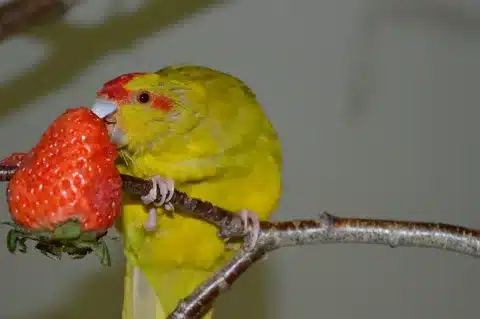
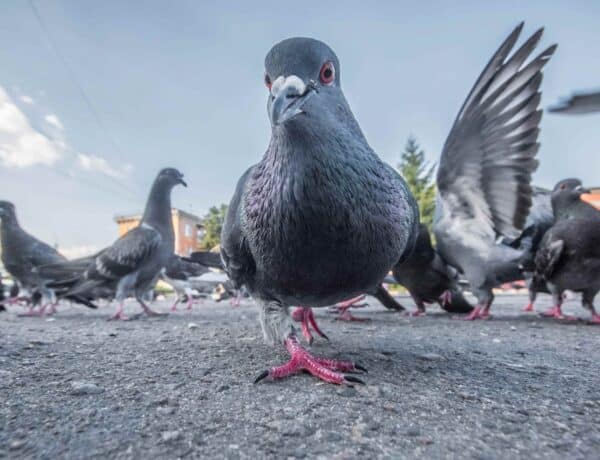
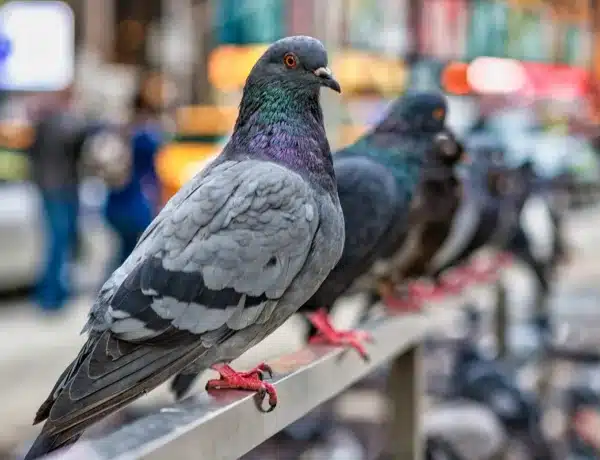
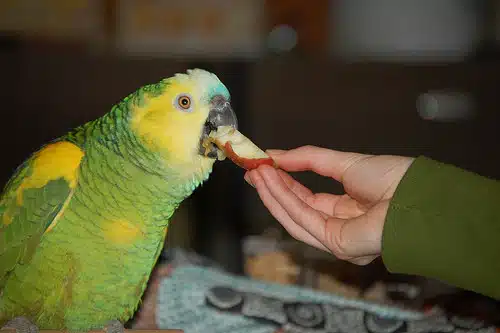
No Comments